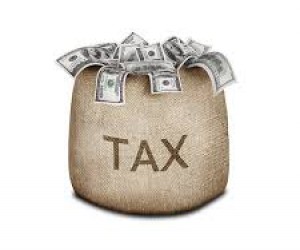Sage Pastel Payroll & HR Budget 2014/15 commentary:
Some tax relief for tax payers in the 2014/15 Budget Speech announcement
Finance Minister Pravin Gordhan delivered no surprises in his Budget Speech on 26 February, favouring consistency and steadiness over change and fireworks ahead of the national election on 7 May. His Budget Speech once again put job creation, infrastructure development, social spending and education right on top of the nation’s list of priorities.
Taxpayers will benefit from R9,25 billion in personal income tax relief in the new tax year, though this relief hardly caters for the effects of inflation, says Madelein van der Watt, Development Manager at Sage Pastel Payroll & HR. 40% of the tax relief was allocated to those who earn up to R250,000 per annum, meaning individuals earning more than R250,000 per annum will receive a little less of the allocated tax relief pool.
Personal income tax brackets and rebates
Personal income tax brackets and rebates have been slightly adjusted. The amount an individual can earn before being required to pay income tax has been increased for the 2014/15 tax year:
· Increase from R67,111 to R70, 700 for individuals below the age of 65
· Increase from R104,611 to R110, 200 for individuals between the ages of 65 to below 75
· Increase from R117,111 to R123, 350 for individuals over 75 years
Individuals aged 65 and older will pay less tax due to an increase in the secondary rebate. The tertiary rebate for individuals aged 75 or older has also been increased which means less tax payable by the elderly from 01 March 2014.
The annual tax rebates for individuals have been increased as follows:
· Under the age of 65 increased from R12,080 to R12, 726
· Aged 65 to 75 increased from R6,750 to R7, 110
· Aged 75 and older increased from R2,250 to R2, 367
Though some commentators had speculated that high earners would need to pay higher income tax, the Minister left income tax rates untouched, says van der Watt. The lowest tax bracket remains at a tax rate of 18% (annual taxable income up to R174, 550) and the highest tax bracket remains taxable at 40% (annual taxable income of more than R673, 100).
Tax credits for medical scheme contributions
Effective from 1 March 2012, the medical aid capping system was replaced with a tax credit - bringing in equality for all taxpayers under the age of 65 and improved benefits for lower earners. Monthly tax credits for medical scheme contributions (reduction of tax payable) have been marginally increased from:
· R242 to R257 for the main member and the first dependent on a medical scheme
· R162 to R172 for each additional beneficiary on the medical scheme
The medical aid tax credit system allows a reduction on income tax and does not reduce taxable earnings as the medical aid deduction system allowed in the past. The credit system is a more fair approach to providing tax relief as each individual contributing towards a medical aid fund will receive equal relief as it is not based on annual earnings. Whether an individual earns R250,000 per annum or R2,500,000 per annum, the income tax liability will be reduced by R257 for each of these individuals with at least a single beneficiary on the medical aid fund.
From the 2014/2015 tax year, medical aid contributions by people older than 65 will also be subject to the medical aid tax credit system. Up until now, those contributions were fully tax deductible.
Fuel levies & subsistence allowances
The general fuel levy and the Road Accident Fund levy will increase by 12c per litre and 8c per litre respectively by 2 April 2014. This will push up the general fuel levy on petrol to R2.25 per litre and R2.10 per litre of diesel. Subsistence allowances paid to employees who travel for business within South Africa, will be tax-free provided the amount paid for meals and incidental costs does not exceed R335 per day. An amount not exceeding R103 per day for incidental costs will also be exempt.
Any good news for SMEs?
Van der Watt says that SMEs could benefit from a recommendation made by the Davis Tax Committee to introduce a tax compliance rebate that replaces the current progressive tax rate structure for income tax on companies. “Minister Gordhan’s speech indicated that he is looking at ways to reduce red tape for small businesses by amending the turnover tax regime and replacing the graduated tax structure for small businesses with refundable tax compliance credits,” she adds.
Youth subsidy and spending
Government will be collecting around R1.02 trillion in tax revenues for the 2014/15 tax year, but how will that money be spent? Mindful of the country’s budget deficit, Minister Gordhan plans to increase real non-interest spending by only 1.9% over the next three years.
Sage Pastel Payroll & HR correctly predicted that the lion’s share of revenue allocation during this year’s budget announcement would go to health services, education and social grants. Minister Gordhan allocated R254 billion for education, R146 billion for healthcare, R143 billion allocated to build new homes and improve basic infrastructure in communities. Social grant expenditure has risen to R118 billion this year.
The Minister also provided feedback about the Employment Tax Incentive in his speech. The Minister mentioned that already in the first month of implementing the subsidy – aimed at increasing employment for the youth – about 56,000 beneficiaries were recorded.
What’s next?
Though Minister Gordhan’s Budget Speech was conservative, South Africans might see more radical changes to the tax system when he or his successor delivers the Medium Term Budget Policy Statement in October. The Tax Review Committee led by Judge Denis Davis has started wide-ranging investigations into South Africa’s tax system, including a focus on value-added tax, mining taxes and wealth taxes.
In addition, Government will soon publish its National Health Insurance white paper, which may also impact on South African businesses and taxpayers.
Sage Pastel Payroll & HR assists SMEs
To assist SME businesses with the changes outlined in the new Budget, Sage Pastel Payroll & HR is incorporating all of the Budget changes to tax bracket values, medical aid benefits, and tax relief rebates. This will ensure that Sage Pastel Payroll & HR customers are immediately compliant when the new Budget stipulations take effect in the new tax year. “With our automatic software updates, our customers will have the new year’s tax rates and calculations downloaded as soon as they open their software to process the first payslip run for March 2014,” says van der Watt.
“We understand small and mid-sized businesses’ day-to-day challenges. Our software is designed to make your life so much easier so you have more time to do what you do best – grow your business,” says Sumay Dippenaar, Marketing Manager at Sage Pastel Payroll & HR.
“There is no reason for businesses to rely on manual payroll spreadsheets since we offer automated solutions that are easy-to-use, smart and affordable, whether you deploy them on the desktop or in the cloud. Our subscription-based payroll solution allows you to pay low monthly fees with no upfront capital outlay, keeping your cash flow in mind.” With an online payroll solution, you only pay per payslip that you process. This pay-as-you-go model is cost-effective at R18 excluding VAT per payslip.






